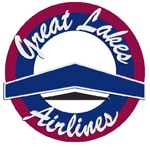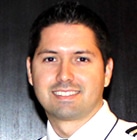
After nearly three years of mediation with Great Lakes Airlines in conjunction with the National Mediation Board, SMART Transportation Division-represented airline pilots employed by the company have finally reached an agreement with the carrier.
Following several requests by the pilots’ local representatives to the NMB to be released from mediation, the affected pilots and SMART representatives reached a tentative agreement in late June.
A four-year contract with significant wage increases and beneficial work-rule changes was approved Sept. 16 with 80 percent of the ballots cast in support of the deal. GO 040 General Committee of Adjustment Vice Chairperson Diane King reports that 92 percent of all eligible pilots voted.

GO 040 General Committee of Adjustment Chairperson Matthew Klundt said many of the GLA pilots were exasperated by the long ordeal. “The word ‘strike’ kept coming up among our members at local meetings, but we were all relieved when we saw a light at the end of the tunnel in June. I personally thank Transportation Division President John Previsich, Vice President Jeremy Ferguson and other union officers for encouraging our members to let the process play out,” he said.
On average, airline captains will receive an immediate 20 percent pay increase, first officers an immediate 22 percent increase, and certified airline transport pilot first officers will see an immediate 50 to 55 percent pay increase, depending on what aircraft they are operating.
All Great Lakes pilots will then receive additional two to three percent wage increases each year, through 2017. Realistically, the increases will amount to about 5.5 to six percent per year with the longevity increases built into the agreement.
Other wage scales have also been negotiated for pilots operating jet airline service in anticipation of the carrier possibly purchasing those aircraft in the future.

“Hopefully, this will come to fruition soon as the number of passengers using Great Lakes’ services has been steadily shrinking due to competition providing faster jet service,” Ferguson said. “The airline’s flights have also decreased due to pilot shortages created by new Federal Aviation Administration regulations which resulted in GLA pilots being recruited by larger carriers. I think this agreement is a win for both sides.”
The airline currently operates only Beechcraft 1900D and Embraer EMB-120 Brasilia turbo-prop aircraft with available seating ranging from nine to 30 seats.
The new contract also contains the following provisions:
- An increase in the daily allowance for expenses (per diem) rate from $1.35 to $1.50 per hour;
- An improved discipline grievance procedure, allowing for formal investigations with proper notice, including written notification of the charges, time limits on the notice, time limits on when a hearing can be held, the right to cross examine company witnesses and the right to a transcript;
- A limit on pairings or crew pairings that cannot exceed five calendar days (Airline work schedules consist of assignments called “pairings” that are a sequence of flights that begin and end at the same terminal.)
- After two years, an increase in the minimum monthly off days from 10 to 11;
- A requirement that pilots not released from service within four hours of his or her originally scheduled release time shall be considered “involuntarily junior assigned.” Pilots may voluntarily pick up one junior assignment, with pay, at a minimum of four hours above guarantee, but involuntary junior assignments are now paid at 125 percent;
- Vacation accrual rates converted from hours worked per month to weeks worked per year; third-year pilots will now be entitled to two weeks of vacation instead of one, and
- A new agreement section listing hotel/lodging conditions and establishment of a union oversight committee on lodging.
After the tentative agreement was reached in June, several issues remained open for discussion that were resolved by memorandums of understanding. That led to a delay in the ratification vote until September.
Ferguson praised General Chairperson Klundt and Local 40 (Denver) President John Nolan for their patience throughout the negotiating and mediation process. “Both Matt and John were very driven during the entire process and were a huge asset to the negotiating team and their fellow pilots. They were instrumental in getting the final negotiations across the finish line,” he said.
Related News
- Chairman Pauli Announces Retirement, SMART-TD celebrates his career
- New Mexico Local 1687 sets new precedent with Red Apple Transit
- Tentative Agreement Reached With TransitAmerica Services (TASI)
- New CSX conductor improvises to save a life
- SMART News: Protecting Railroad Retirees’ Future
- More Than a Story: SMART-TD’s Women’s History Month Highlights Legacies in the Making
- Tentative Agreement Reached in Boston
- Assembly, No. 1672
- Historic short-line agreement proves workers are stronger with SMART-TD at their side
- SMART-TD’s Public Comment Opposing CSX’s “Zero-to-Zero” Push